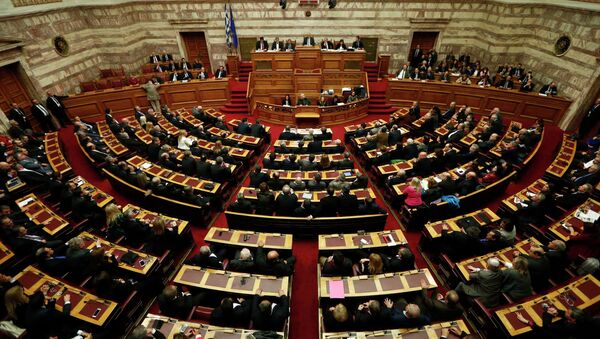As of 16.50 in Athens, the Greek Stock Exchange was down 3.88% from its previous close, at 820.08 points. The German Dax Stock Index also experienced a fall, down to 9878.51 at 16.04 in Frankfurt, a decline of 0.44%. Both markets experienced a sharp dip around midday as news was announced of the January elections, with the Dax falling to 9,775.45 at 11.37, while the Athens Index reached a low of 756.8 after noon.
The figures reflect the fear that volatility in Greece will prompt a knock-on effect in the European markets, where three rounds of voting in parliament to elect a president have failed to gain a majority for the coalition candidate, former European Commissioner Stavros Dimas.
On Monday, Prime Minister Antonis Samaras announced in a televised address that he intended to propose early elections on January 25 in order for a new government to be formed. "All those who have voted against are responsible for an event that Greek people did not want," he declared, according to Reuters. "It's time for Greeks to do what parliament has not done: to end uncertainty and restore stability."
The Chief Economic Adviser at the Centre for Economics and Business Research, Vicky Price, has commented that the problems besetting Greece are representative of a wider frailty of the European framework. "Arguably Greece is just a symptom of this malaise and its current problems exemplify what is wrong with the Eurozone as a whole," she wrote in ThisisMoney on Sunday. "The worry for the markets is that if Greece is once again plunged into a crisis that could spread elsewhere."
The anti-austerity manifesto of the Syriza party, for whom latest poll results released December 20 forecast an election win, includes renegotiating the country's level of debt, renationalizing parts of the economy, and increasing wages, policies which run in opposition to the economic policy planned by European Union institutions. The worry for investors is that such a divergent approach could lead to the country's exit from the Eurozone, and default on its debts.




